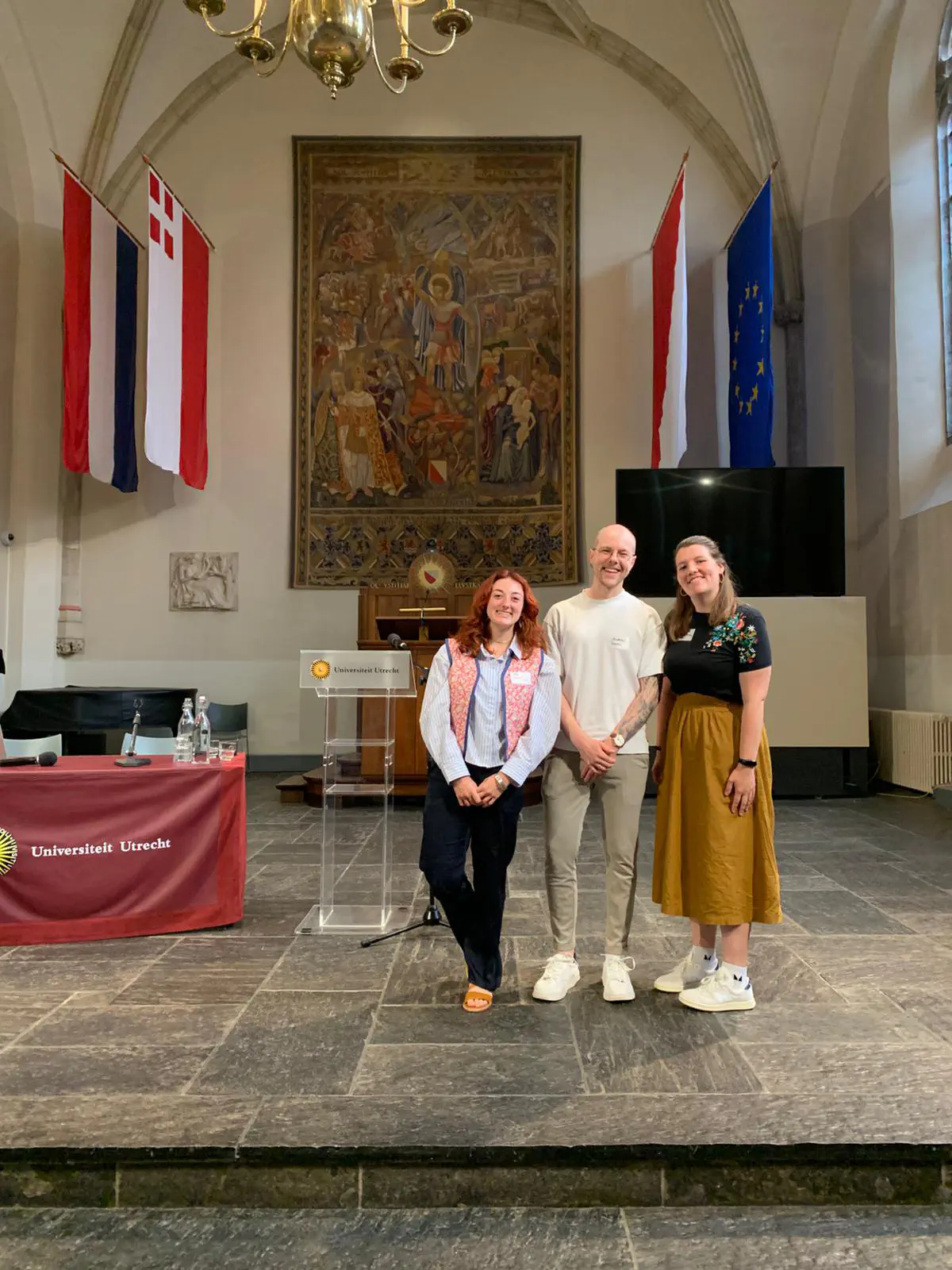Research workshop on unraveling the Integration Paradox
On June 18, the first workshop on the Integration Paradox took place. We hosted the event at Utrecht University.
 Thanks Jonathan!
Thanks Jonathan!
One of the privileges in our profession is certainly the opportunity to combine work with travel. This time, I went to Utrecht, a lovely city in the Netherlands, where I co-hosted a research workshop on the Integration Paradox together with Chloé Lavest (Utrecht University) and Nella Geurts (Radboud University). The workshop took place at Utrecht University, right before the second Migration and Societal Change (MSC) Conference. This was no coincidence of course. The idea was to join forces and attract as many great people to Utrecht as possible.
Workshop summary
We were really unlucky. First, the employees of the dutch railroad company NS went on strike on the day of arrival. While one person from Germany couldn’t make it to the workshop because of that, the other international participants struggled quite a bit to get to Utrecht. Then, at the workshop day itself, we realised that protesters have occupied the building in which our workshop should have taken place. Thanks to Chloé, a last-minute room change was possible. Now, we only had to direct everyone to the new place shortly before the event kicked-off, re-order catering and set up the IT at the new venue. Sounds stressful? Well, at least I can say that we were no longer stressed about conducting the workshop itself–which was a huge success against all odds!
We had the pleasure to listen to nine interesting presentations that dived into the mechanisms underlying the Integration Paradox. Among others, Claudia Diehl (University of Konstanz) talked about perceived wage unfairness, Sanne van Oosten (Oxford University) about reasons for heightened discrimination awareness among highly educated immigrants, and Ben van Enk (WODC & Rotterdam University) about the Integration Paradox from a country-level perspective, focusing on EU countries.
I presented ongoing work with Didier Ruedin (University of Neuchâtel), in which we show that the Integration Paradox isn’t just about highly educated immigrants. Less-educated immigrants also play a role. And depending on how recognisable someone is as an immigrant, the paradox tends to emerge at different stages of their stay in the country.
Conference summary
At the MSC Conference, we arranged for Merlin Schaeffer to be first keynote speaker who opened the event, and organised a roundtable on the Integration Paradox to communicate our insights from the workshop to a wider audience, discuss the current state of research and future avenues within our field. Nella, Chloé, Claudia and I were interested to engage with the audience to hear their opinion on the status quo and promising further research. We were pleasantly surprised how many people attended our roundtable and actively participated.
What was the bottom line? The unraveling of the Integration Paradox is ongoing! As a consequence, the field is united by this one term, which at the same time is becoming increasingly obsolete due to the progress in research. Who knows, maybe we need to find a new title for a potential next workshop… ;-)
Laudatio
A big shout out to everyone who participated in the workshop and the roundtable! Without you, these events wouldn’t have made much sense. Special thanks go to Chloé and Nella. We were a great team and happy to provide this platform for the community.